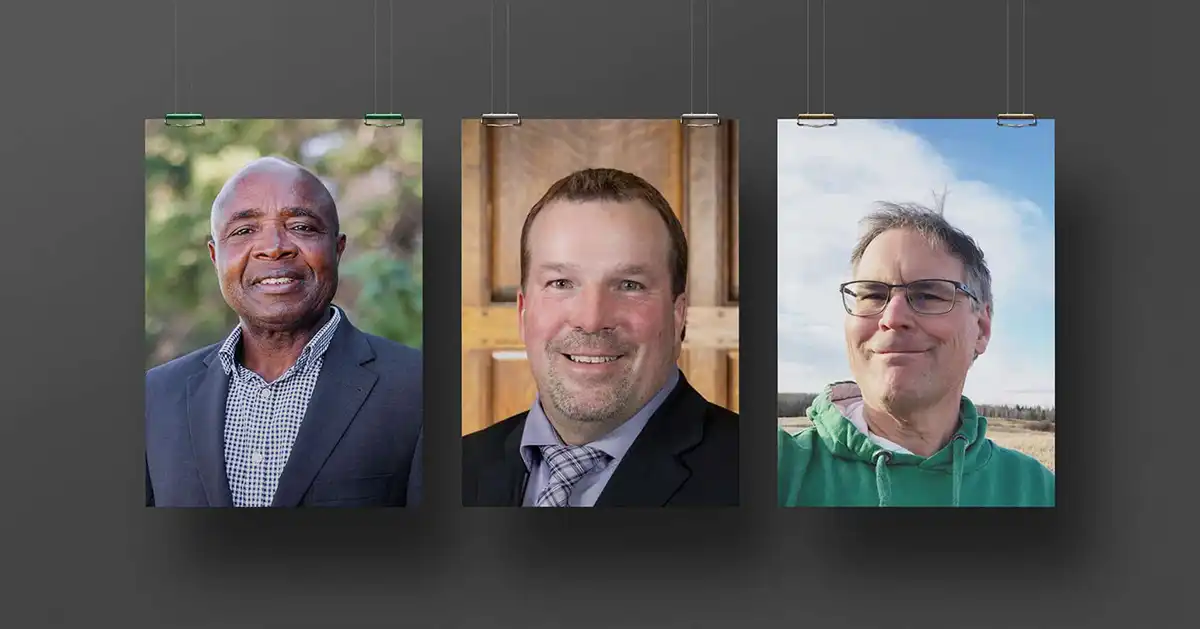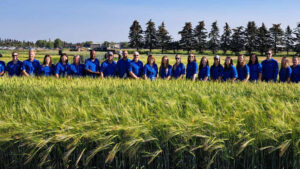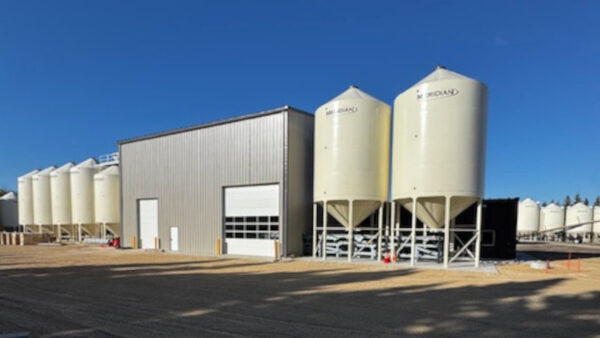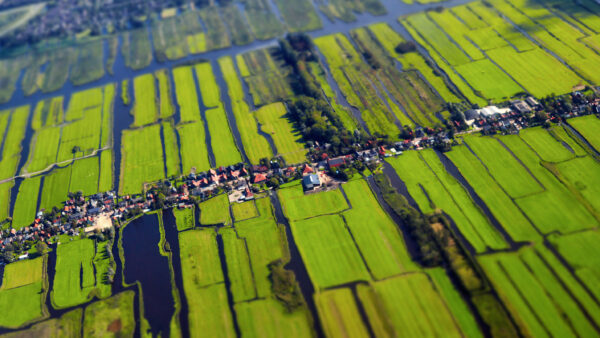Mark Olson has been announced as the interim executive director for Alberta’s Western Crop Innovations as it transitions away from being the Field Crop Development Centre. Managing partner of Osborne Interim Management, he provides leadership during a period of transition, rapid growth or change. He has demonstrated success with two decades of offering interim management services and executive advisement to private sector businesses, not-for-profit and social enterprise organizations.
Alberta Seed Guide: Tell us about your background in agriculture.
Mark Olson: I’ve been deeply involved in agriculture for the past two decades, although my career initially began in media, specifically broadcasting. Over the years, I’ve had the opportunity to collaborate with a diverse range of groups and organizations in the agricultural sector. From the Western Canadian Wheat Growers to crop input companies like Syngenta and seed companies like Canterra Seeds, my experience has been broad and varied. I’ve also worked closely with retailers such as Crop Management Network and individual farm enterprises.
ASG: You’re the former interim general manager for Alberta Grains, so you have experience guiding various groups through major transitions. What’s a memorable one other than Alberta Grains?
MO: One significant project I was involved in was the restructuring of 4-H Alberta in collaboration with Kim McConnell back in 2018. This involved merging various entities, including the government-supported programming, the 4-H Society of Alberta, and the 4-H Foundation. This experience laid the groundwork for some of the challenges we navigated when Alberta Grains was formed.
In between these endeavours, I served as interim CEO at Alberta Fish and Game, another organization heavily reliant on government funding and membership support. The agricultural community is tightly knit, and it’s common to encounter familiar faces across different boards and projects. For instance, Jason Lenz, our WCI Interim Chair previously served on the executive of Alberta Wheat, and the Interim Executive of AB Grains.
ASG: What’s your first priorities as the interim executive director for Western Crop Innovations?
MO: In my role, which I’ve been in for just two weeks now, my primary focus is on connecting with stakeholders, both internally and externally. Internally, I’ve been engaging with our staff, who have undergone significant changes over the past few years. I want to ensure they understand our vision, address any questions they have, and foster confidence in the direction we’re heading. Externally, we’re just beginning to engage with industry stakeholders to understand their needs and priorities. We recognize that in the realm of science, it’s easy to develop plans that might not effectively address real-world challenges faced by farmers. Our aim, aligned with the vision of Agriculture Minister R.J. Sigurdson, is to bridge the gap between research and practice, ensuring that our initiatives resonate with growers and are supported by private industry through collaborative funding models. By bringing research, extension, and industry closer together, we believe we can achieve more impactful outcomes than would be possible with limited resources alone.
ASG: How are the staff doing during what’s no doubt been a challenging time?
MO: Yeah, I have to say, they’re an incredible group. It’s truly remarkable how they’ve weathered the storm together. I mean, not many teams could have gone through what they did and still stick together, still keep pushing forward, even when their job security was uncertain. They’ve shown real resilience and dedication. And if you take a look at the collective experience within the team, it’s pretty impressive. We’ve got some top-notch researchers in there, with a wealth of knowledge and expertise.
What’s important for me is to make sure they understand that the past three years — since the Field Crop Development Centre went to Old College — haven’t been in vain. Despite the program transitioning into Western Crop Innovations, their hard work and achievements still stand. I want to emphasize that to the community as well. Just because the program moved doesn’t diminish the value of what they’ve accomplished. My role here is to ensure that message gets across loud and clear.
ASG: What does the immediate future hold for you?
MO: We’re really focused on laying down the groundwork for the organization. We recently involved our staff in brainstorming and creating a new logo and brand for us. While we haven’t unveiled it yet, the engagement from our team was fantastic. It’s important to us that they feel valued and included in shaping our future direction.
This rebranding serves two purposes. Firstly, it reinforces the message that we’re charting our own path as an organization. We value collaboration with our existing partners like Olds College, but we’re also open to working with other post-secondary institutions. This logo and brand represent our independence and vision for the future.
ASG: Western Crop Innovations is going through a 12-month review, at which point it will be decided what the future looks like for various parts of the program. Tell us about that.
MO: The transition plan we’ve laid out is quite comprehensive, spanning up to a year. While it might not necessarily take that entire duration, there’s a considerable amount to accomplish. I’ve made a commitment to both the interim board and the province to stay on for the duration of that year, possibly longer if necessary. Our target is to have everything in place by March 2025. By then, there will be a new elected board taking over from the interim one, and we’ll also be actively recruiting my successor, who will be tasked with leading the organization into the future. But right now, our primary focus is on assessing our current situation, laying down foundations, and essentially building the framework for what’s to come. The house has to be built before anyone can move in, so to speak.













